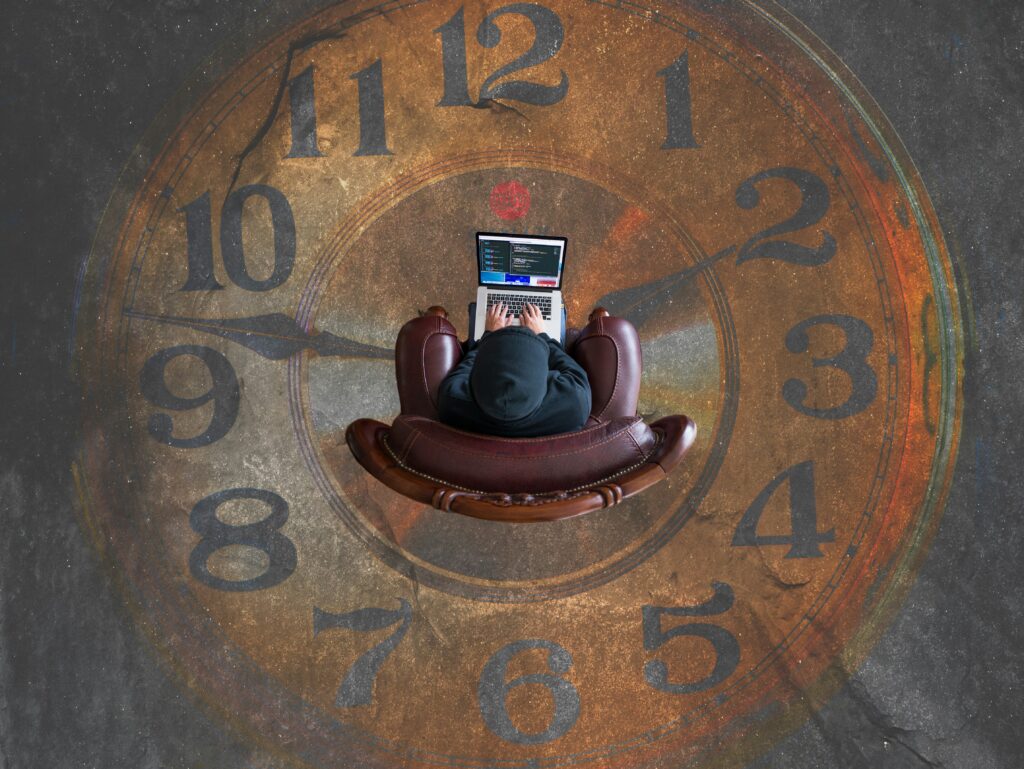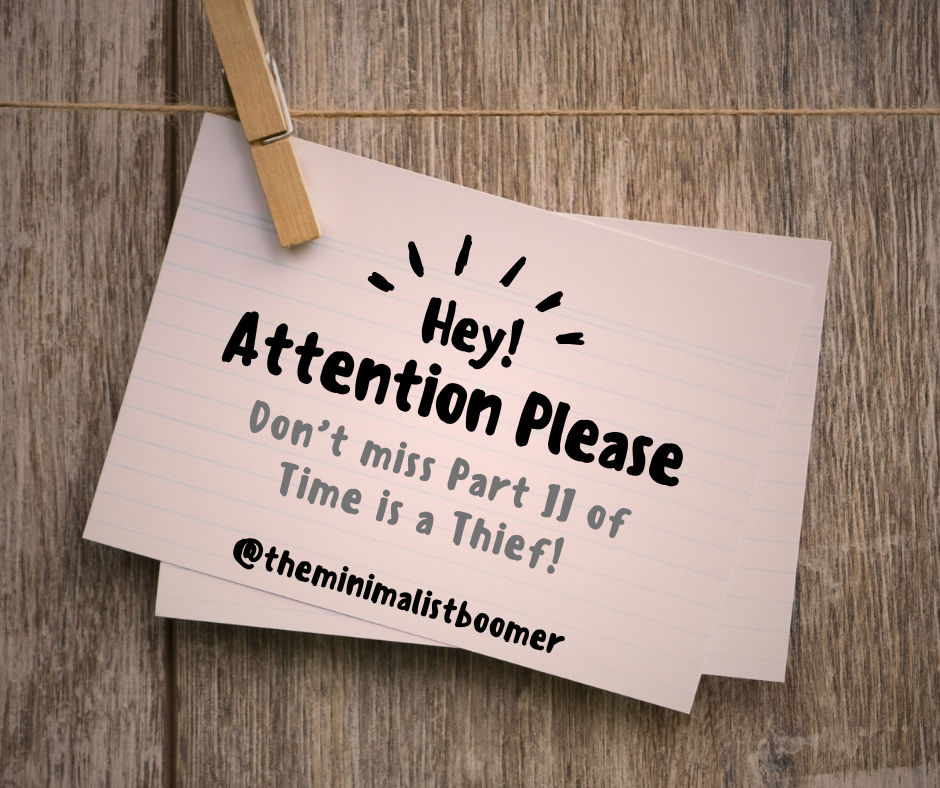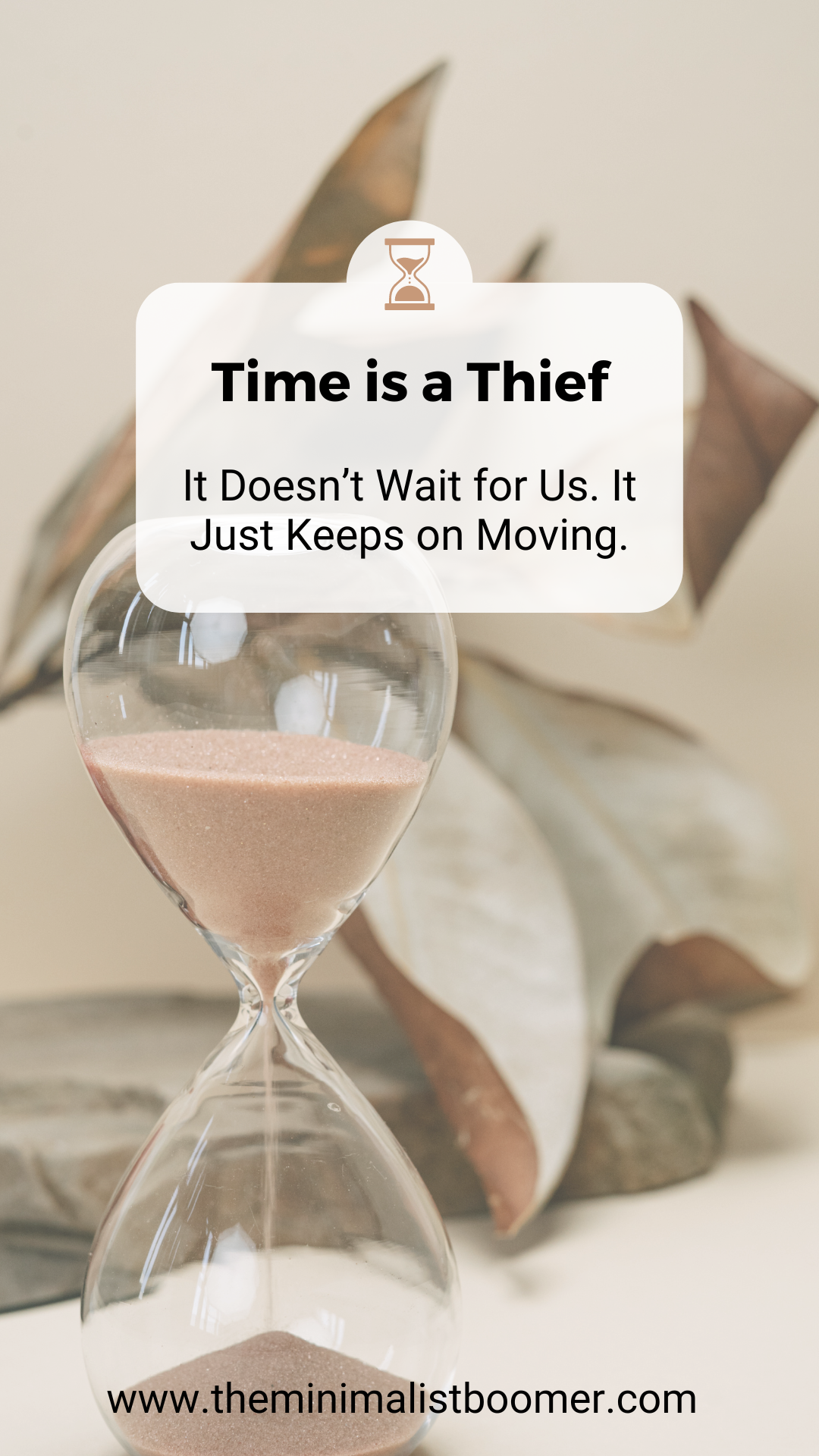Breaking the Illusion
Sometimes, we get so caught up in the hustle and bustle of daily life that we forget an important truth: time is a thief. It sneaks up on us when we’re not looking, stealing those precious moments right out from under our noses. But why do we let this happen? Maybe it’s because we’re under the illusion that we have all the time in the world.
Spoiler alert: we don’t. So, how do we break free from this illusion and start making the most of every moment? Let’s see if we can find out.
“Time is free, but it’s priceless. You can’t own it, but you can use it. You can’t keep it, but you can spend it. Once you’ve lost it you can never get it back.” – Harvey Mackay

Embracing the Present
Living intentionally in the present moment sounds like something out of a self-help book, doesn’t it? But it’s one of the most straightforward strategies for making sure time doesn’t slip through our fingers. Here are a few ways to start:
- Mindfulness: This isn’t just a buzzword. It’s about being fully aware of the here and now. Try starting your day with a five-minute meditation, focusing solely on your breathing. It’s like giving your brain a mini-vacation from the stress of yesterday and the worries of tomorrow.
- Gratitude Journaling: Every night, jot down one or two things you’re grateful for. It could be as simple as a delicious cup of coffee or the smell of rain. Gratitude anchors us in the present and helps us appreciate the little things.
- Digital Detox: Ever find yourself mindlessly scrolling through social media, only to realize an hour has disappeared? Setting aside specific times to unplug can help you reclaim those lost moments and spend them on something more fulfilling.
Setting Realistic Goals
Now, don’t get me wrong—I’m all for dreaming big. But when we set goals that are too lofty, we can end up feeling like we’ve bitten off more than we can chew. And that’s a fast track to feeling like we’re running out of time. Here’s how to set goals that are just right:
- The Goldilocks Principle: Your goals should be not too big, not too small, but just right. If you want to write a book, don’t set a goal to write it in a month. Break it down into smaller, more manageable pieces, like writing a chapter a month.
- Timeline It: Put a realistic timeline on your goals. Create a step-by-step plan with deadlines that are doable but challenging. It’s like creating a roadmap for your dreams.
- Celebrate Small Wins: Every time you cross a small goal off your list, congratulate yourself. Celebrating progress keeps you motivated and reminds you that you’re moving forward, one step at a time.

Remember, time is a thief, but only if we let it be. By embracing the present and setting realistic goals, we can steal back our moments and live a life full of purpose. Let’s not wait until it’s too late to realize what we have. After all, the best time to start making the most of our time is now.
“You have got to own your days and live them, each one of them, every one of them, or else the years go by and none of them belong to you.” – Herb Gardner
The Urgency of Now
Time waits for no one, and in the hustle and bustle of life, it’s easy to forget that time is a thief. One minute you’re planning all the things you want to achieve, and the next, you realize another year has slipped through your fingers. Let’s think about the concept of why now, not tomorrow or next year, is the time to act on your dreams and face changes head-on.
Seizing the Day
Have you ever thought about what you could accomplish if you started today? Every journey begins with a single step, and the truth is, there’s no better time to take that step than now. Whether it’s pursuing a new hobby, starting a business, or taking a trip you’ve always dreamed of, the urgency of the present cannot be overstated. Remember, time is a thief, and every day you wait is a day you won’t get back.
I know, taking the first step can be scary. You might be wondering, “What if I fail?” But what if you succeed? Imagine where you could be a year from now if you start today. Here’s a tip to get going:
- Set clear, achievable goals: Break down your aspirations into smaller, manageable tasks. It makes taking the first step less daunting.
- Create a plan: Having a roadmap of where you’re going helps keep you on track.
- Be accountable: Share your goals with a friend or family member. It’s motivating!
Life’s too short to keep putting off your dreams for a “more convenient time.” Let’s be honest, that time rarely comes. So, why not start today?
“The more sand has escaped from the hourglass of our life, the clearer we should see through it.” – Niccolo Machiavelli

Embracing Change
Change is inevitable, and yet, it’s something many of us fear. But here’s the thing: Embracing change can be one of the most rewarding decisions you ever make. Why? Because time is a thief, stealing moments even as we try to hold on to them. Those who make the most of every moment, adapting to change rather than resisting it, often find themselves leading richer, more fulfilling lives.
Think of it this way: Change is like the seasons. Just as winter gives way to spring, bringing new life and new beginnings, change can bring new opportunities and experiences into our lives. Here’s how you can start embracing change:
- Stay positive: Focus on the potential benefits of change, not the negatives.
- Be open to new experiences: Sometimes, the best things in life come from the unexpected.
- Learn from challenges: Every challenge is an opportunity to grow and learn.
Change doesn’t wait for the perfect moment. It comes, whether we’re ready or not. By embracing it, you open yourself to new possibilities that you may never have imagined.
In a nutshell, don’t let time be a thief of your aspirations or your ability to adapt. The urgency of now is calling – seize the day and embrace change. Make every moment count!
In the journey of uncovering the truth behind the notion that “time is a thief”, we’ve ventured through the various ways in which this silent pilferer operates, often unnoticed. We’ve explored the intricate relationship between making the most of our moments and the comforting yet deceptive belief that there’s always more time.
This exploration has unveiled a simple, yet profound realization: every second is a treasure trove of possibility, waiting to be unlocked. The trouble is… we think we have plenty of time. This belief lulls us into a false sense of security, tempting us to postpone our dreams, delay our goals, and take our relationships for granted.

Let this be a call to action. Let’s shift our perspective to see time not as an infinite resource, but as the precious, fleeting gift it truly is. Let’s vow to cherish each moment, embrace every opportunity, and live with a sense of urgency. After all, time is a thief, but only if we allow it to be. Let’s not give it that chance.
Thank you for your gift of time!





















